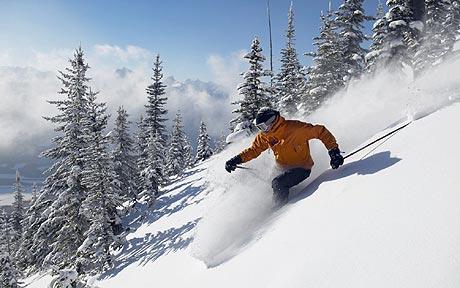Skiing is a fantastic winter sport that provides exercise, adrenaline and natural beauty. Many lovers of the winter activity have grown increasingly fond of off-piste skiing. Off-piste skiing is when you are skiing on fresh, ungroomed powder; usually in the backcountry. This can offer the experience of a lifetime but does increase some danger levels. Included here are a few things to remember before heading out into the fluffy stuff.

Don’t Travel Alone
When venturing into the backcountry, it’s never wise to go without a partner. Be sure to have someone with you in case of injury or avalanche. Plan your route down the mountain and try to adhere to it. If you cannot find anyone to go with, make sure someone knows where exactly you will be. Try to give them a copy of your route as well as your departure and return times. If you don’t return they should be able to contact emergency services for you. The ideal is to have a partner travelling with you, both for safety and relationship building.
Carry Proper Equipment
Anytime you are out in the elements, it is wise to have some emergency gear with you. The most important device when traversing backcountry is to have a beacon or avalanche transceiver. This device will allow you to be found if you are buried in an avalanche or lost. You also will want to carry a backpack with you; complete with warm clothes, food and water as well as a shovel to dig yourself out of deep drifts.
Recover From a Fall Carefully
When you fall in powder, it is a different experience than on a groomed trail. Because off-piste is so fluffy, you will sink farther into the snow if you try to push up on only one spot. The best way to recover from a fall when skiing off-piste is to cross your poles into an X-formation and press into the center of the X to leverage yourself back up. You never know exactly what the snow depth is or how packed it has become, so sinking down farther can become dangerous.
Enjoy the View
Most importantly when off-piste skiing is to look up from time to time. It is easy to become bogged down focusing on technique and posture and forget where you are. You are travelling the less accessible mountain tops in the prime of winter. You have the opportunity to see things that some people will never experience in their lives. So be sure to look up, capture the surroundings with a mental picture and take a deep breath. You are healthy, fit enough to take on mountains and lucky enough to experience the beauty of the backcountry.



